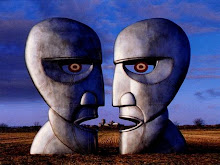
This is a picture of the guns that rapper T.I. was arrested trying to buy. These are automatic rifles that you find people who plan terrorist attacks with. These are guns with drums of ammo, instead of just a clip. They are intense illegal guns, and there are a lot of them. Why would anyone outside of military members need weapons like this. A common idea of hip-hop is the need to have guns. Guns provide a sense of power, and a sense of control. If something happens with a gun you have the ability to take control of the situation. But why not just purchase a legal firearm, instead of these highly illegal unregistered weapons. Guns as a sport can be a very fun activity, but these guns don't seem at all like they are for range shooting. These guns are designed with the specific intent to kill humans. Guns give people a sense of power, but why would anyone need guns to this extent? A rapper like T.I, a person who has been arrested 32 times, said he felt that he needed the weapons for protection. In this interview, http://www.youtube.com/watch?v=JfbjpXio0NI, T.I. stresses that he wants people to not admire him for the bad things he has done, but instead because he has become a man an admitted that he was wrong and accepted the consequences. T.I. had enough money to buy the weapons, and expressed is power in this way. Having this many weapons of that caliber really makes me question the type of person that T.I. was. I feel like there is a lot of his history that is unknown to the media, but maybe that is what makes him so popular. The idea that he could of been doing some serious damage with those guns, especially a man with his criminal history.


